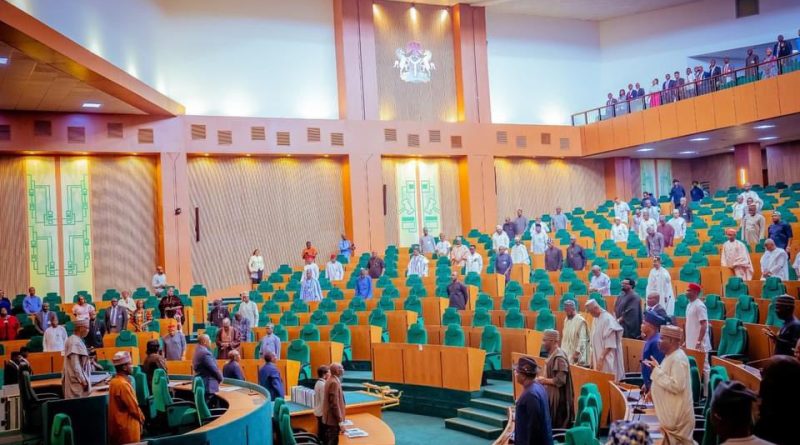Reps seek stronger ties with Niger Republic to tackle banditry in Sokoto, Sahel Region
The House of Representatives has urged the federal government to renew diplomatic and security cooperation with neighbouring Niger Republic and other Sahel countries to help curb the escalating wave of banditry and cross-border insecurity ravaging border communities in Sokoto State and other parts of the North-west.
This resolution was sequel to a motion on “Urgent Need for Intensified Security Operations to Curb the Escalating Wave of Banditry in Kebbe and Tambuwal Federal Constituency, Sokoto State,” moved during Tuesday’s plenary by Abdussamad Dasuki (PDP, Sokoto).
The House, while adopting the motion, also mandated its Committees on Defence, National Security and Intelligence, and Police Affairs to ensure coordinated security operations, and the Committees on ECOWAS Parliament and Foreign Affairs to work towards normalising Nigeria’s strained relations with the Niger Republic to enable regional intelligence sharing and cooperation in tackling arms proliferation, insurgency, and transnational banditry.
Unrelenting violence in Kebbe and Tambuwal
Presenting the motion, Mr Dasuki painted a grim picture of the worsening insecurity in his constituency. He said residents of Kebbe and Tambuwal Local Government Areas have continued to live in fear following a series of violent attacks by armed bandits that have claimed lives, destroyed livelihoods, and displaced thousands.
He recounted the attacks of 12 August in Fakku Ward, Kebbe LGA, where bandits killed five residents, abducted 28 others, and rustled 37 cows.
Three days later, Sangi Ward came under siege, forcing hundreds of residents to flee to nearby towns such as Kuchi, Koko, and Kebbe. On 18 August, Ungushi Ward suffered a similar fate, leaving two people dead and seven abducted.
In Tambuwal LGA, he said, the crisis has been no less severe. On 20 August, bandits invaded Jabo/Kagara Ward, displacing residents from four villages who sought refuge in Jabo town.
On 23 August, three young businessmen were abducted in Tambuwal/Shinfiri Ward at the Local Government Headquarters, while Tambuwal town itself has faced multiple attacks, including the abduction of three daughters of a resident on 16 July and the kidnapping of PDP Youth Leader Abdullahi Zaki on 25 August. Mr Zaki is still missing despite ransom payments.
“These unrelenting attacks have left families shattered, communities deserted, and children unable to attend school, while farmers have abandoned their farmlands due to fear of further violence.
The resulting economic paralysis has deepened poverty and eroded social cohesion in Kebbe and Tambuwal communities,” Mr Dasuki said.
The lawmaker also linked the worsening insecurity to the broader diplomatic and security tensions in the Sahel region, particularly between Nigeria and Niger Republic.
He called on the House to direct its Committees on ECOWAS Parliament and Foreign Affairs to work towards “normalising relations with neighbouring Sahel states, especially the Niger Republic, to enable cross-border intelligence sharing and regional cooperation to curb arms flow, insurgency, and transnational banditry in border communities.”
Mr Dasuki emphasised that Nigeria cannot win the war against banditry and terrorism in isolation, as the threats are regional in nature and require collective responses among Sahelian countries.
Regional security at a crossroads
Since the Niger coup that ousted President Mohamed Bazoum, relations between Abuja and Niamey have been frosty.
ECOWAS, under Nigeria’s leadership, imposed sanctions and closed borders with Niger in protest against the military takeover, cutting off official security coordination mechanisms that previously existed under the ECOWAS security framework and the Multinational Joint Task Force (MNJTF).
This disruption has created security vacuums along Nigeria’s northern flank, particularly across Sokoto, Zamfara, Katsina, and Kebbi states, where thousands of kilometres of porous borders have become corridors for smuggling, arms trafficking, and the movement of insurgents.
Before the sanctions, both countries had collaborated on intelligence sharing and joint patrols along key border routes. However, the suspension of these operations, combined with the withdrawal of French and Western counterterrorism forces from the Sahel, has allowed militant and criminal networks to reorganise, expanding their influence from Mali and Burkina Faso into Niger and northern Nigeria.
Mr Dasuki’s motion underscored this link, warning that without immediate diplomatic and security engagement, Nigeria’s border communities could remain soft targets for transnational bandits who exploit weak governance and poor coordination between Sahel states.
READ ALSO: Reps probe incessant, arbitrary bank charges on customers
Other resolutions of the House
The House, in adopting the motion, urged the Nigerian Armed Forces, Police, and other security outfits to immediately reinforce deployment in affected areas, enhance joint operations, and prioritise intelligence-led missions to restore peace and protect farmlands.
It also called on the federal government to intensify efforts to rescue abducted victims, bring perpetrators to justice, and provide psychological and material support to victims and displaced persons.
The National Emergency Management Agency (NEMA) and humanitarian organisations were tasked to deliver emergency relief to affected communities.
Deputy Speaker Benjamin Kalu, who presided over Tuesday’s session, referred the motion to the Committees on Defence, National Security and Intelligence, Police Affairs, NEMA, and Inter-Parliamentary Affairs for follow-up and reporting within two weeks.
The House also observed a minute of silence in honour of the victims of the Sokoto attacks.

